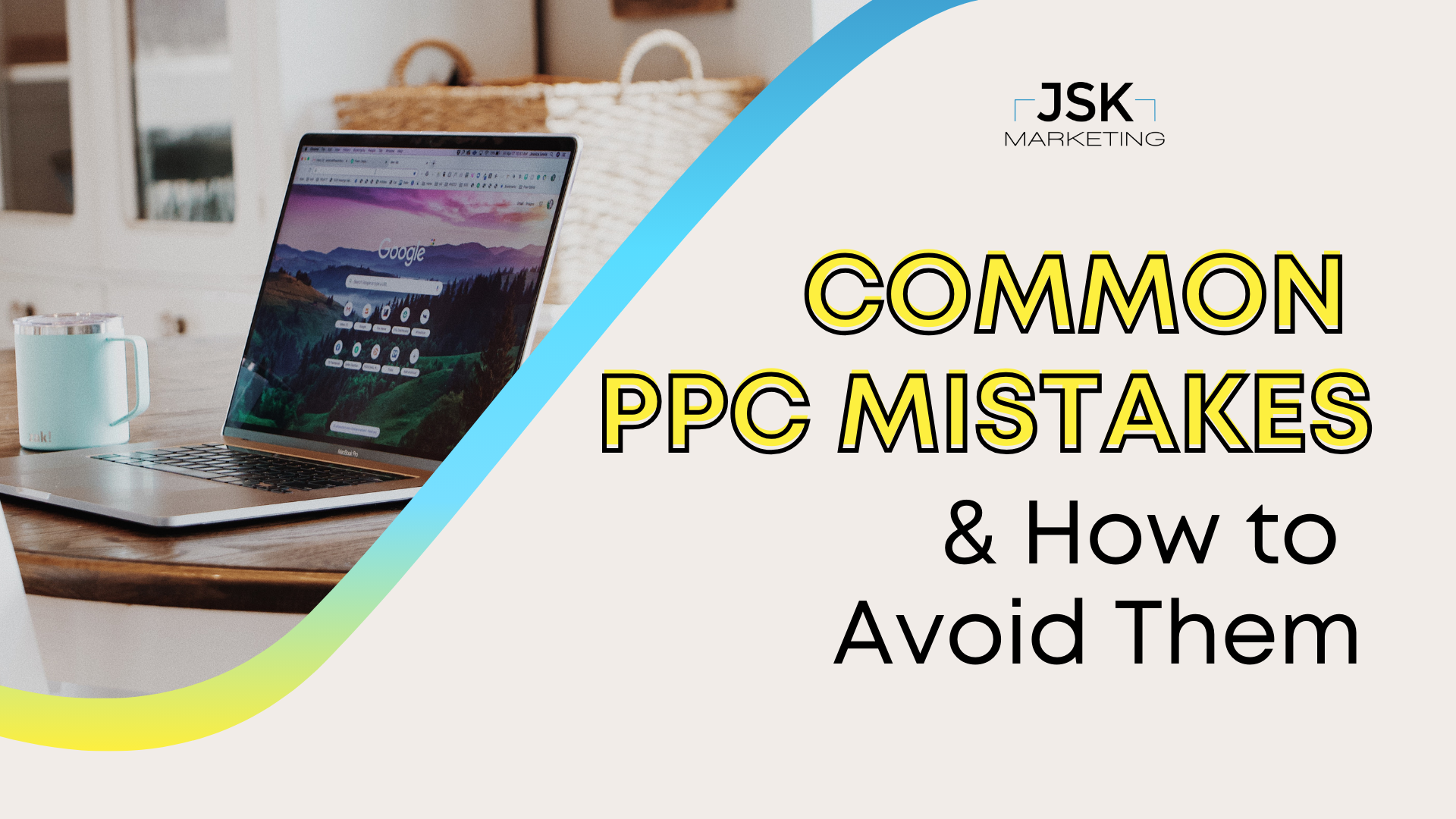
Running a PPC (Pay-Per-Click) campaign can be a powerful way to drive leads and sales – if it’s done correctly. But without the right strategy, it’s easy to burn through your budget without seeing much return. If you’re not getting the results you expected, you might be making one of these common PPC mistakes. Here’s what to watch out for and how to fix them.
Set it & Forget it
PPC is NOT a ‘set it and forget it” strategy. If you’re not regularly monitoring and optimizing your campaigns, you’re likely missing out on opportunities to improve performance – or worse, wasting your budget on less-than-effective ads. PPC success requires ongoing optimization. To ensure this success, schedule regular check-ins to review campaign performance, adjust bids, test new ad variations and refine targeting based on data.
Targeting too Broad of an Audience
Trying to reach everyone often leads to wasted ad spend on people who aren’t interested in your product or service. Broad targeting might increase clicks, but if those clicks aren’t converting, they aren’t valuable. You can fix this by utilizing audience segmentation, location targeting, and detailed demographics to refine your reach. The more specific your targeting, the more likely you are to attract qualified leads.
Not Using Negative Keywords
Another common mistake is neglecting negative keywords. Negative keywords are essential for preventing your ads from showing up in irrelevant searches. If you’re not using them, you’re likely paying for clicks from people who aren’t looking for what you offer. This mistake can be avoided by regularly reviewing your search term reports and adding negative keywords to filter our unrelated searches. For example, if you sell premium products, you wouldn’t want your ads to show up for terms related to “cheap” or “discount.”
Overlooking Mobile Optimization
If your landing page isn’t mobile-friendly, you could be losing a significant portion of your audience. Slow load times, hard-to-use navigation and poor formatting can all lead to lost conversions. Make sure to test the mobile experience regularly and optimize for a seamless conversion process.
Not Tracking Conversions Properly
Without proper conversion tracking, it’s impossible to know which keywords, ads or campaigns are generating the most value and best results. You need clear data to make informed decisions. To effectively track conversions, it’s important to set up goals and events in Google Analytics that align with your business objectives. This includes defining what constitutes a conversion, whether it’s a purchase, a sign-up or a download. By linking your Google Ads account with Google Analytics, you can gain deeper insights into user behavior and the effectiveness of your ads. Additionally, consider using UTM parameters to track the performance of specific campaigns and ads, allowing for a more granular analysis of your PPC efforts. This comprehensive approach to conversion tracking will allow you to optimize your campaigns for the best results.
PPC campaigns require ongoing attention and strategy to perform well. By avoiding these common mistakes and continuously refining your approach, you can improve your ROI and make the most of your ad spend.
If you’re in the market for fine-tuning your PPC strategy, or digital advertising strategy in general, let’s talk!




